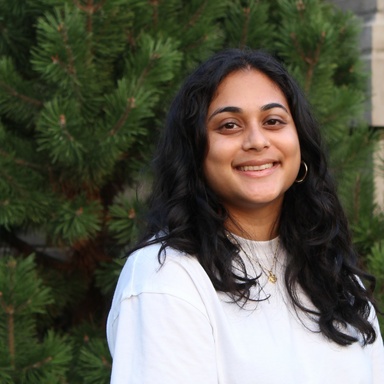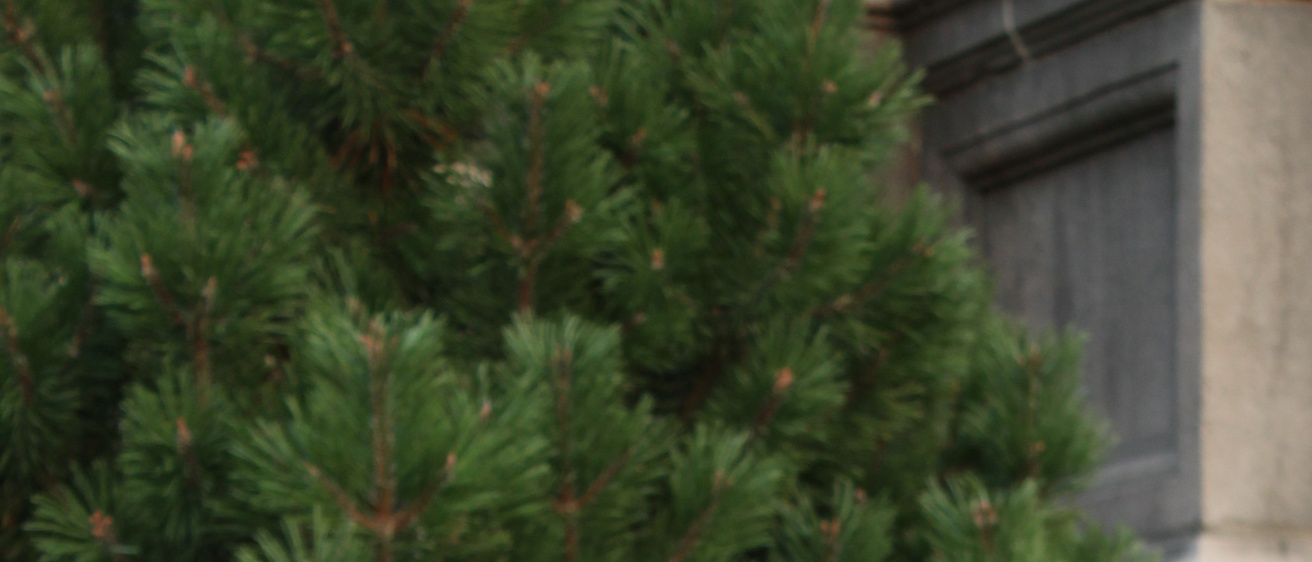
“May I go to the bathroom?” I raised my hand as my fourth-grade teacher walked around the classroom. She nodded in my direction and turned away. I quickly grabbed a pencil and a couple of pieces of paper and scurried out of the room before she noticed what I was carrying. Whether I was frustrated with fractions, had forgotten my lunch, or just had a spontaneous story idea that simply could not wait, I would make the familiar journey to my school’s restroom. For five minutes, fairies, witches, and friendly flies swirled to life on my pages. Charlie the Kitty would be the first cat on the moon. “Monsters” from another dimension would turn out to be just like us. A character’s laughter written into existence would be enough to make me feel warmth.
I have carried my love for creative writing with me into my college career, and it has expanded into my love of many forms of writing. Soon, I will be graduating with a B.S. in Psychology on the pre-med track having earned a Writing Certificate. In these fields, I’ve had the opportunity to write comprehensive biology lab reports, contemplative psychology essays, and reflective fiction and nonfiction creative prose. My time at the University of Iowa has allowed me to experience an incredible breadth of disciplines and that experience has only been refined by what I’ve learned as a Writing Fellow, a course-based writing tutor.
Earning a Writing Certificate at the University of Iowa means that one gets to play in several different types of writing. Students can take a class on the structure of a single sentence, the analysis of the grammatical intricacies of the English language, the exploration of genres like horror, fantasy, and nonfiction, or the inner workings of being a playwright. The most rewarding experiences I have gained from taking courses that are part of the certificate were those that encouraged me to write creative nonfiction. I’ve always loved writing fiction; it’s my bread and butter. Nonfiction always felt harsh, however—it felt like it was meant for those who lived extravagant lives or for those who had something important to say. I didn’t know how to put my lived experiences into words. So, as you can imagine, when I was assigned to write a nonfiction creative piece in my Writing Commons class, I was utterly stuck. But our professor walked us through it; she told us to pick a moment in time, no matter if it was big or small. She told us to jot down five senses from that moment and stick to the parameters of writing the piece in second person. Most importantly, she told us to reflect on this moment in time—to feel it again, to understand its importance because every moment in our lives is worth talking about.
My piece was about my mom and me. It’s a personal moment, so I won’t share it here, but my professor taught me that a nonfiction piece doesn’t have to be extravagant to be meaningful. It can be quiet, pondering. She also taught me the importance of reflecting on our experiences—to put tangible words to what maybe an intangible experience, an experience difficult to capture. Through this process, one can better understand themselves, and I think writing is one of the most beautiful means of doing that.
Writing in the psychology and science fields is quite different from the writing I do in my Writing Certificate courses. For one, it is much more standardized. In my biology, chemistry, and psychology lab reports, there are a series of subheadings one must follow: the Introduction (which showcases the gap in the research), Methods (which lists the procedure one had to complete), Results, and Discussion (which discusses the significance of the findings and future directions). Everything is neatly organized and efficient, allowing readers to spring to the sections that are most relevant to them. The most rewarding experience I had was, unsurprisingly, one of the very first reports I wrote. It was titled "Understanding the TAS2R38 and LCT Loci in regard to the Hardy-Weinberg Model." Now, I know this probably doesn't make a lick of sense without context, but the report was about a procedure to test if my group members and I had the gene that digests lactose and/or the gene that allows us to taste the bitter chemical PCT. These results were pooled with the class data, and then we calculated the class genotype and allele frequencies.
Science writing is nothing short of challenging, but the lab report I wrote in this class allowed me to hone in on two major things: how to get my point across concisely, and how to argue the significance of my findings. Because I was required to write a lab report, I had to know exactly how every single step we took contributed to the larger study for the Methods section. I had to be able to communicate the significance of my findings in the Discussion section without getting too into the weeds. I had to clearly label and articulate the findings in the Results section without interpreting them. I had to research and provide relevant background information from other studies for the Introduction section. The entire process taught me how scientific experiments are conducted and later communicated. Compiling all this information together to write a 10-page lab report was a strenuous process, but in the end, I was proud that I strengthened my ability to put together a cohesive piece of scientific communication.
I have also had the privilege of working as a Writing Fellow for the past three years where I can use all I have learned from the courses I have taken. Being a Writing Fellow at the University of Iowa means getting to work with students from a specific course on their written work. Fellows provide feedback on the margins of each draft as well as write a “commenting letter,” consolidating all our thoughts in one space. Additionally, we hold 25-minute conferences to discuss areas where the student needs the most help. My entire experience as a Writing Fellow has been incredibly rewarding—I get to help my peers with one of the things I love to do most in the world, and I get to see them light up when they know where they want to take their draft next.
One of my fondest memories is from when I had the opportunity to serve as a Writing Fellow for a class called Global Migration. I was working with a student who felt quite apologetic about their draft; they almost seemed ashamed of it. I looked at them and reassured them that rough drafts were meant to be just that: rough, not perfect. A piece of advice that had resonated with me during my training as a Writing Fellow was to provide genuine notes of praise in my commenting, and not only focus on areas of improvement. On hearing this, I realized that this had always impacted my perception of the feedback I received on my own writing. Whenever my professor would leave a compliment on my draft, I would leave feeling like I was capable of making it stronger. So, I started off by showing this student areas of their work that I absolutely adored, and following this, they gained the confidence to ask me about the places that needed a little more work. At the end of the meeting, they were beaming and excited to continue working on their draft. Their sincere thanks meant a lot to me, and I am so glad that I could help them see the beauty that was already there in their writing.
Because writing is so integrated, it is difficult for me to pinpoint exactly how my experiences with one kind of writing or discipline appear in another—it is all intertwined and melded. One critique that I do have of my experience at Iowa is this: I wish I had more of an opportunity to reflect on how disciplines weave together with one another, instead feeling like separate blocked off courses. Putting different courses in conversation with one another to show the intersection between different fields, especially with a structured reflection component, would have been greatly beneficial in my learning. This could manifest in a course designed for students to compile their own written work across disciplines and reflect on both the largest and most trivial similarities. It could also manifest in a seminar of students from different majors, all learning from the overlap between their work. This is not to say I haven’t found moments where I have used my knowledge in one field in another. For example, when during a free writing exercise in my Prose Style class, I pondered over how a plant can be parasitic yet still beneficial for its ecosystem; perhaps this could be reflective of relationships as well? Or how understanding people—understanding humankind's drives and emotions through psychology—blends well with what makes up so much of the literary realm. Both explore what about us is beautiful but also fallible. Both reckon with relationships, mental health, and life at large. All these areas bleed into one another because it is both science and creative writing’s purpose to bring new ideas, findings, and meanings into the world.
